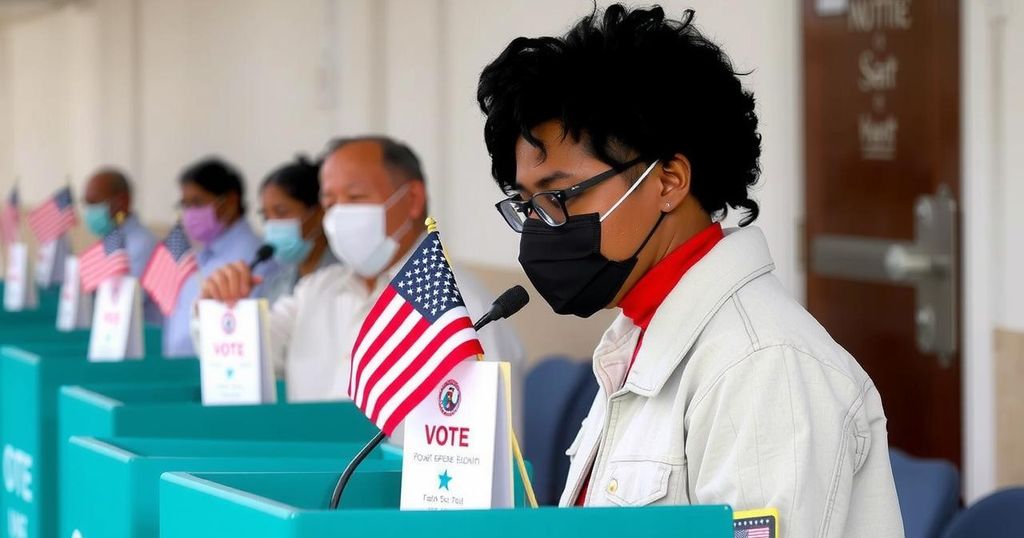World news
2024 PRESIDENTIAL ELECTION, AFRICA, BURKINA FASO, CIVIL RIGHTS, CUSAT, ELECTION, FED, GERARD M. KARAM, JEFF CUSAT, JIM PERRY, JOE BIDEN, JUSTICE DEPARTMENT, LAW, NBC PHILADELPHIA, NORTH AMERICA, PA, PENNSYLVANIA, PERRY, PHILLY, PRESIDENTIAL ELECTION 2024, SCRANTON, U. S, U. S. ATTORNEY, U. S. JUSTICE DEPARTMENT, UNITED STATES
Sofia Rodriguez
0 Comments
Justice Department Challenges Hazleton’s Election System for Bias Against Hispanics
The U.S. Justice Department has filed a lawsuit against Hazleton, Pennsylvania, claiming that its at-large electoral system violates the Voting Rights Act by diluting the political power of the Hispanic population. City officials dispute this, stating that the current system allows equal participation for all citizens. The complaint highlights systemic discrimination and calls for a new method of electing representatives to better reflect the city’s demographics.
The U.S. Justice Department has initiated a lawsuit seeking a judicial declaration that Hazleton, Pennsylvania’s method of electing city council members through an “at-large” system violates the Voting Rights Act. This system is alleged to diminutively impact the political influence of the city’s expanding Hispanic populace. The complaint asserts that the current electoral structure denies Hispanic citizens an equitable opportunity to engage in the political process and elect representatives of their preference.
Under the administration of former President Joe Biden, the Justice Department requests that the city transitions to a new electoral framework that allows for a fairer representation of its Hispanic community. City officials, including Mayor Jeff Cusat and City Council President Jim Perry, counter that the at-large election method affords equal voting rights to all citizens, regardless of race or gender. They argue that the lower electoral turnout among Hispanic voters is the primary obstacle to their representation, rather than the voting system itself.
U.S. Attorney Gerard M. Karam emphasized the significance of the Hispanic community, noting that these citizens deserve to select candidates who represent their interests. Hazleton’s demographic profile indicates that approximately two-thirds of its 30,000 residents are Hispanic; however, no Hispanic individuals have ever been elected to the City Council. The lawsuit contends there are patterns of racially polarized voting that impede the election of Hispanic candidates, who struggle to secure campaign resources and recognition.
Moreover, State Representative Manny Guzman believes this lawsuit could enhance Hispanic residents’ political influence, highlighting systemic issues within the local government that hinder their rightful representation. A related lawsuit concerning a similar at-large voting system for the Hazleton Area School Board remains pending in court, with claims that it similarly disenfranchises Hispanic voters. The school district, however, maintains that it complies with federal laws regarding voting rights.
The issue of voting rights in Hazleton, Pennsylvania, has arisen due to the increasing population of Hispanic residents who face challenges in political representation under the current at-large election system. The U.S. Justice Department’s intervention, citing the Voting Rights Act, highlights systemic discrimination in the electoral process. As demographic shifts occur within the community, the voting structure has not adapted, leading to the underrepresentation of Hispanic citizens in local governance. This situation is further compounded by factors such as limited electoral turnout and racially polarized voting, raising concerns about equitable political participation. Hazleton’s population demographics reveal a significant majority of Hispanic residents, yet this community remains unrepresented in elected positions, prompting legal scrutiny of the electoral process. Additionally, the ongoing legal battles surrounding the school board elections signify a broader concern about how electoral frameworks may systematically disenfranchise minority voters in local jurisdictions.
In conclusion, the U.S. Justice Department’s lawsuit against Hazleton underscores significant concerns regarding the equality of political representation for the city’s Hispanic population. The at-large election system is being challenged as a violation of the Voting Rights Act, with implications for fair electoral practices. Local officials maintain that equality exists within the current system, yet the persistent underrepresentation of Hispanic candidates raises questions on the efficacy of their arguments. This case may set precedence for future electoral reforms aimed at enhancing political power for minority communities in similar contexts.
Original Source: www.nbcphiladelphia.com




Post Comment